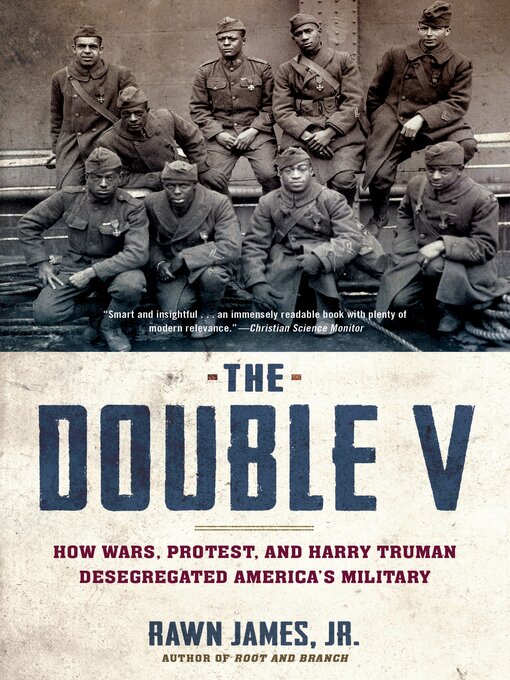
?Beginning with the Revolutionary War, African Americans had used military service to do their patriotic duty and to advance the cause of civil rights. The fight for a desegregated military was truly a long war-decades of protest and labor highlighted by bravery on the fields of France, in the skies over Germany, and in the face of deep-seated racism on the military bases at home. Today, the military is one of the most truly diverse institutions in America.
?In The Double V, Rawn James, Jr.the son and grandson of African American veteransexpertly narrates the remarkable history of how the strugge for equality in the military helped give rise to their fight for equality in civilian society. Taking the reader from Crispus Attucks to President Barack Obama, The Double V illuminates the African American military tradition as a metaphor for their unique and dynamic role in American history.
-
Creators
-
Publisher
-
Release date
January 22, 2013 -
Formats
-
Kindle Book
-
OverDrive Read
- ISBN: 9781608196173
-
EPUB ebook
- ISBN: 9781608196173
- File size: 3419 KB
-
-
Accessibility
No publisher statement provided -
Languages
- English
-
Reviews

Loading
Formats
- Kindle Book
- OverDrive Read
- EPUB ebook
subjects
Languages
- English
Why is availability limited?
×Availability can change throughout the month based on the library's budget. You can still place a hold on the title, and your hold will be automatically filled as soon as the title is available again.
The Kindle Book format for this title is not supported on:
×Read-along ebook
×The OverDrive Read format of this ebook has professional narration that plays while you read in your browser. Learn more here.